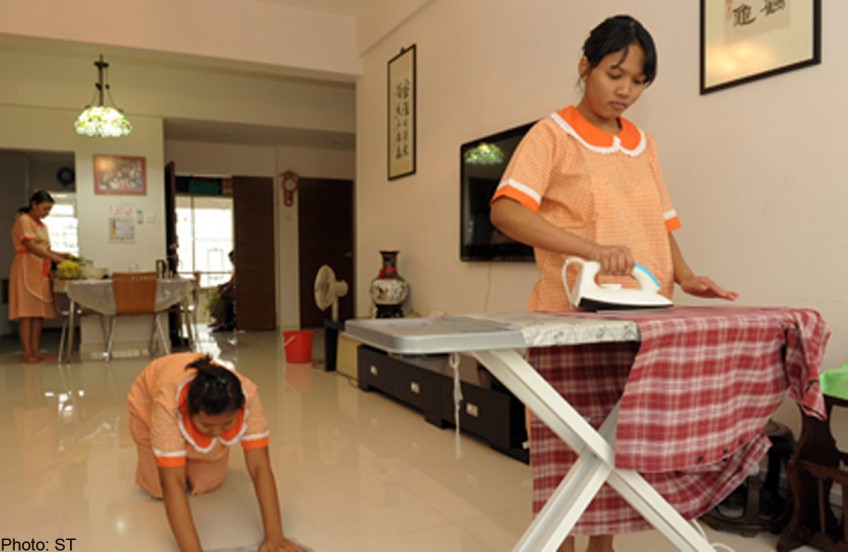Don't just craft laws, be clear about them

Your domestic helper looks younger than it states on her passport.
You think nothing of it until she gets in trouble with the law. Turns out she is actually 17.
Have you hired an underage worker? Under the Palermo Protocol, you could be at risk of being tagged a human trafficker.
Far-fetched? Think again.
International norms are being imposed on countries and translated into local laws and they govern not just how Singapore and Singaporeans behave but also how we trade.
UNDERAGE DOMESTIC WORKER
Take the Palermo Protocol or, as it otherwise known, the United Nation's Protocol to Prevent, Suppress and Punish Trafficking in Persons, Especially Women and Children.
What we know of the Protocol in Singapore mainly relates to underage sex workers. To combat the movement of young women for prostitution, it is illegal here to have commercial sex with a minor under 18.
It doesn't matter if she is doing it to feed her family or to buy a branded bag. The Protocol makes it clear the girl is to be protected against exploitation.
I salute that.
The Protocol is also about minors and women being made to move overseas for work from poor foreign countries.
Would that include domestic workers?
Much of the discussion surrounding the Protocol has been on underage commercial sex and nothing on domestic workers.
But Singapore has said it will sign the treaty when domestic measures are put in place.
So are employers of underage domestic workers at risk when local laws are amended?
Details from the underage commercial sex trials made it clear the burden is on customers/employers to demonstrate they have done all checks to verify the girl's age.
But when a customer of a local underage prostitute said he had checked her identity card, which showed she was above 18, the court said it was not enough. Turns out, she had used her sister's IC.
Beyond the passport - a legal travel document - how else can employers verify the true age of their domestic helper?
The Protocol protects the worker. But how can employers be protected?
With about 200,000 domestic workers here, Singaporeans need to have a good understanding of the treaty will impact them.
CANING CHILDREN
In 1995, Singapore became a signatory to the UN Convention On The Rights Of The Child (CRC).
Every five years, after the initial report in 2003, the Government has to provide a comprehensive report to the UN.
The way corporal punishment is meted out in schools was changed to reflect a compromise. The UN said no to corporal punishment, we argued that our Asian way of discipline sometimes involves more than chiding.
The compromise was the introduction of a systematic manner of exacting corporal punishment on children. But will Singapore eventually have to amend its laws to reflect UN's norms?
Will I be arrested for slapping my child when the CRC becomes a local law? Political and thought leaders, including journalists, need to do a better job at helping Singaporeans understand how the world has changed.
They need to help Singaporeans grasp why Singapore has to change and how these changes will impact them. As Parliament debates the President's address this week, I was heartened to read Mr Inderjit Singh's recent Facebook posting.
He argued that current policies are being driven mainly by civil servants who don't have a good feel of issues on the ground.
But the gap is not just in how policies are crafted. These policies are not explained to Singaporeans in terms they understand.
And when there's a void, you can bet someone will fill it.

This article was first published on May 28, 2014.
Get The New Paper for more stories.